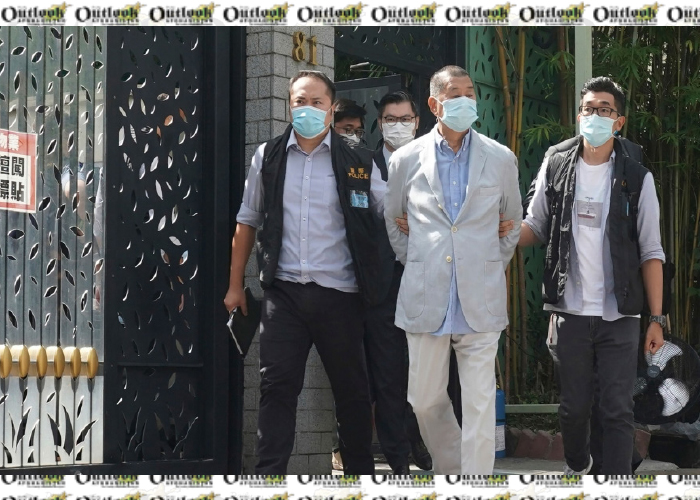Hong Kong authorities have frozen assets belonging to jailed media tycoon Jimmy Lai, including all shares in his company, Next Digital – the first time a listed firm has been targeted by national security laws in the financial hub.
Also among assets targeted were the local bank accounts of three companies owned by Lai, Hong Kong’s Secretary for Security John Lee said in a government statement.
The statement, issued after the market close on Friday, said Lee had issued notices “in writing to freeze all the shares of Next Digital Limited held by (Jimmy) Lai Chee-ying, and the property in the local bank accounts of three companies owned by him”.
Lai was sentenced to 14 months in prison for taking part in unauthorised assemblies during pro-democracy protests in 2019.
He faces three alleged charges under a sweeping new national security law imposed by Beijing, including collusion with a foreign country.
The move against his assets was also made under the security law, which criminalises acts including subversion, sedition, collusion with foreign forces and secession with possible life imprisonment.
Under Hong Kong stock exchange filings, Lai is Next Digital’s major shareholder and holds 71.26 percent of shares that were worth approximately 350 million Hong Kong dollars (US$45m) based on Friday’s closing share price.
The value of the other “property” assets frozen by the authorities was not immediately clear.
Next Digital runs the Apple Daily, Hong Kong’s most influential pro-democracy newspaper that has long been a thorn in the side of Hong Kong and Chinese authorities.
Senior Hong Kong officials have recently warned Apple Daily about its coverage and have spoken of the possible introduction of a “fake news” law. Critics have said this is all part of a continuing crackdown on the city’s media.
The Taiwan arm of Apple Daily said on Friday it would stop publishing its print version, blaming declining advertising revenue and more difficult business conditions in Hong Kong linked to politics. (Aljazeera)
Home » World » Hong Kong Freezes Shares of Media Tycoon Lai Under Security Law
Hong Kong Freezes Shares of Media Tycoon Lai Under Security Law

